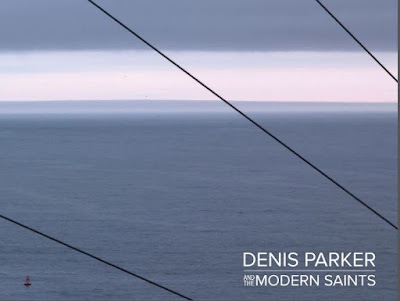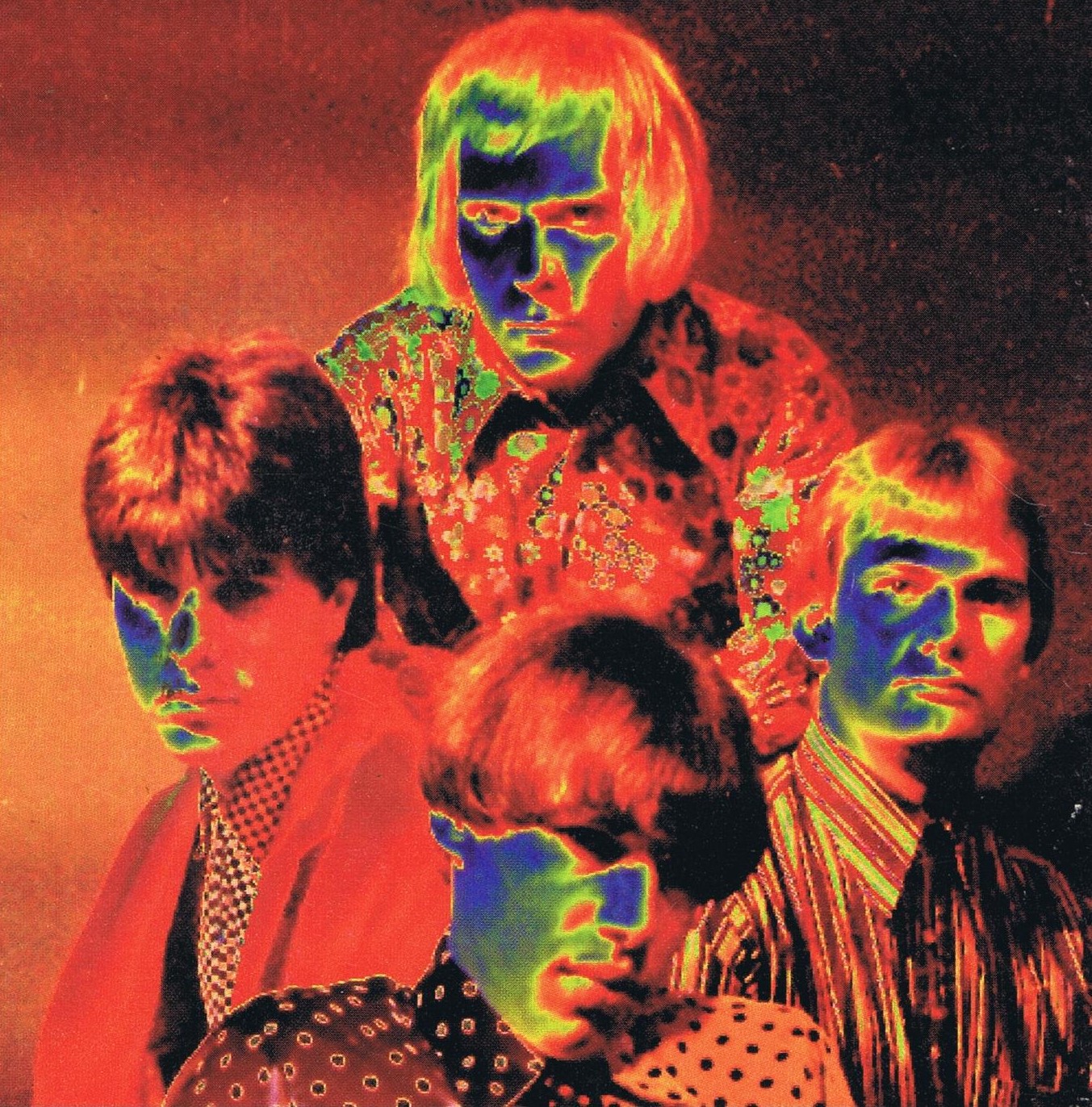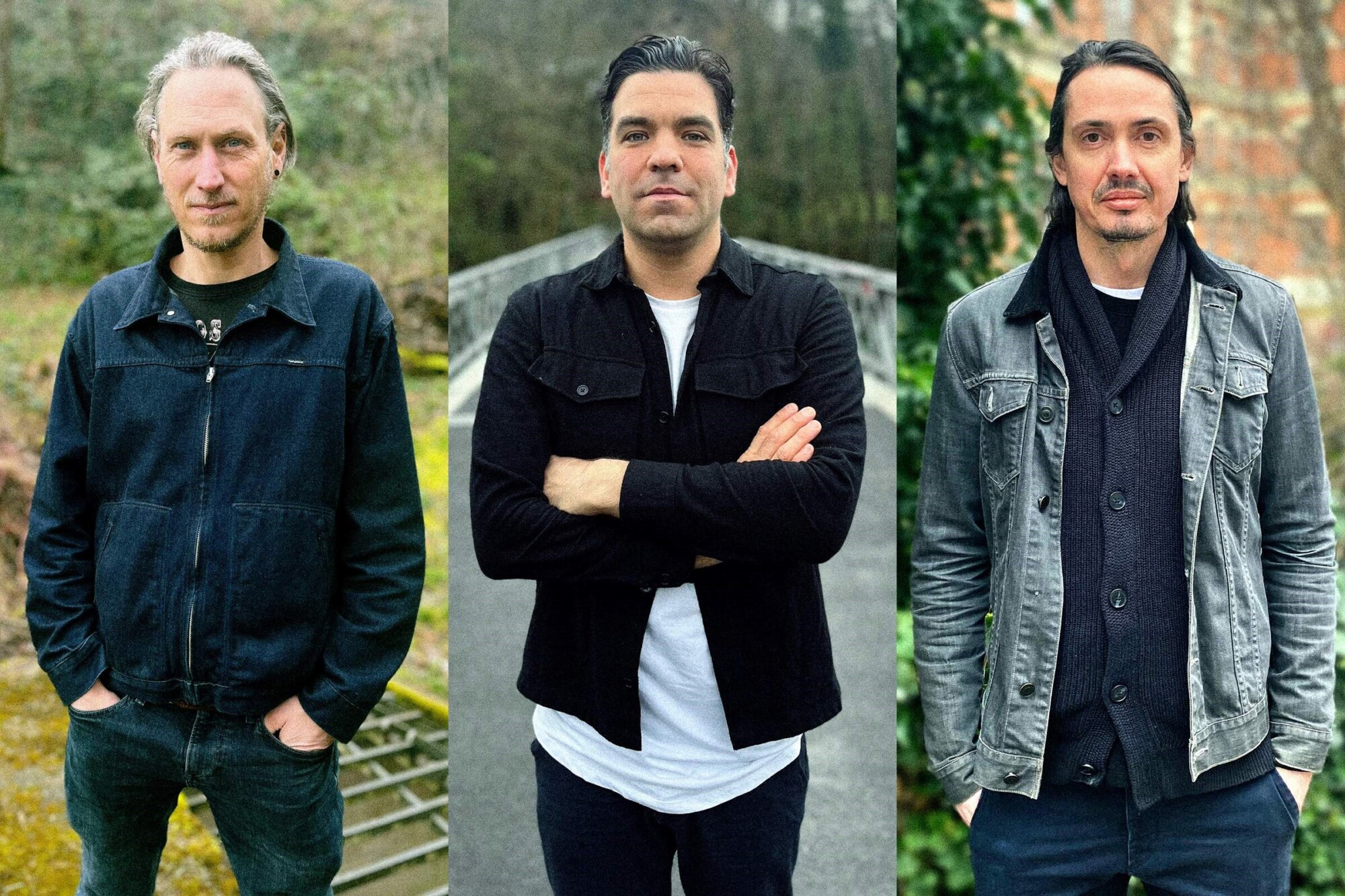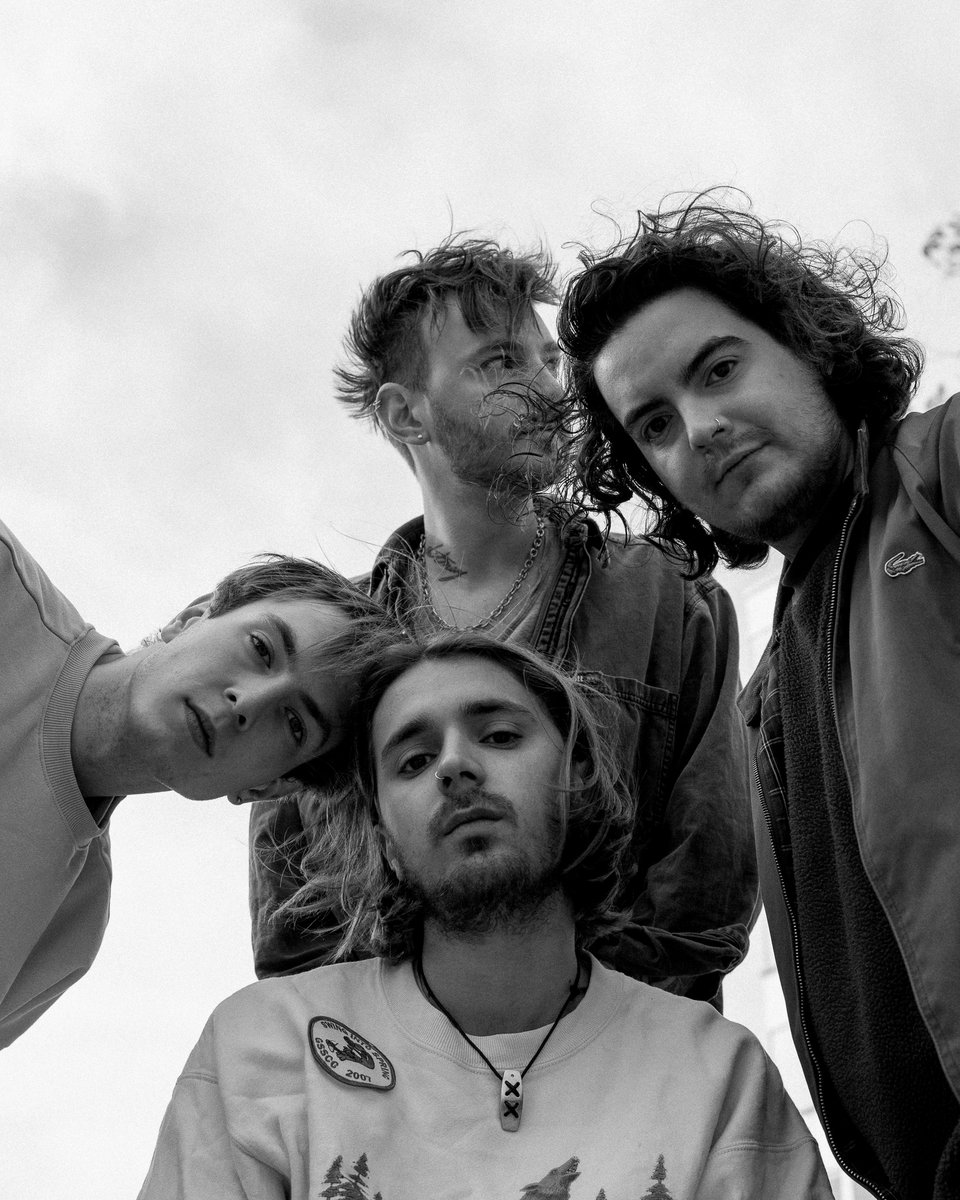Panama Limited interview with Denis Parker
Panama Limited Jug Band released their debut in 1969. After that they became much more experimental. Indian Summer was their second and sadly last album.
Where and when did you grow up? Was music a big part of your family life? Did the local music scene influence you or inspire you to play music?
I was born in 1946 and grew up in West London. I went to school at Holland Park Comprehensive. My mum said she was tone deaf but my dad had a good voice and liked Frank Sinatra. He sang at family gatherings. The local music scene was a tremendous influence, but not until I left school at sixteen. That’s when we used to go and see bands like The Who, Rolling Stones, Georgie Fame, Long John Baldry, The Kinks, The Beatles and the list goes on and on.
When did you begin playing music? What was your first instrument? Who were your major influences?
I played the trumpet at school, it was their instrument, my folks didn’t have money for that kind of thing. I bought my first guitar when I was sixteen, a second hand Hofner electric. My amp, a Fenton Weill was repoed due to non-payment, which was a blessing for my mum as she didn’t have to suffer listening to me stumble through bar chords! In 1964, I purchased a Harmony Sovereign acoustic, which set me on my path. I gravitated towards the folk blues of Bert Jansch, Davy Graham and remember seeing John Hammond Jr. live which impressed the hell out of me. I bought a record called The Blues Project, a compendium of American blues revivalists such as Dave Van Ronk, Spider John Koerner, Geoff Muldaur and Dave Ray. Then I met Gerry Lockran, an excellent blues artist who was very well known in those days, Gerry took me under his wing, gave me lessons and introduced me to Beverley Martin, whom I accompanied briefly. These experience led me to the vast treasure trove of African-American artists.
What bands were you a member of prior to the formation of Panama Limited Jug Band?
I was basically playing solo at folk clubs during this period, until I hooked up with guitarist Tony Ralph and harpist Chris Blanchflower in a trio called “Special Streamline”. Then I became disillusioned, put my guitar in the closet and got a steady office job in the city.
What was the first song you ever composed?
I believe the first song I composed was called “Woman I Love” which is on the album Indian Summer.
Can you elaborate the formation of the band?
I was the last person to join Panama Limited Jug Band. After working for two years in an office, I was bored stiff, but skeptical of getting back into music seriously. The guys tracked me down through the local voter registration office and called my mum. They told me they had been offered a recording contract with EMI Records and that I should give it a go. I dusted off the Harmony, rehearsed with them, it felt good so I agreed. I put my notice in at the day job the next day!
When and where did Panama Limited Jug Band play their first gig? How was the band accepted by the audience?
Once I joined, we rehearsed a lot in preparation for the recording session at Abbey Road but there weren’t many gigs. I remember playing at The Troubadour in Earls Court and another gig in Essex, where I can’t recall. The band was always well received, people loved the old jug band music, exactly as they were in the US with the Even Dozen and Kweskin Jug Band’s.
How did you decide to use the name “Panama Limited Jug Band”? Was it after Bukka White’s song?
The name of the band was definitely after Bukka White’s song, as was “The Special Streamline”. Bukka was a particular favourite, I met him backstage at the Hammersmith Odeon (now Apollo), fine chap! I assume that was the idea of the band’s leader Brian Strachan. After the first album EMI insisted we lose the Jug tag and record more conventional music (whatever that means), so we dropped the Jug and also changed a couple of band member’s.
What influenced the band’s sound? I definitely hear some influences coming from Captain Beefheart And His Magic Band…
Haha, yes, we were all big Beefheart fans and he certainly influenced both my singing and song writing at that time.
Did the size of audiences increase following the release of your debut?
Well, because we did very few gigs, any increase would have been an improvement! We were signed to The Beatles management company Epstein Enterprises, so it was a sort of sit back and wait, not one I enjoyed. I remember we were scheduled to do a gig at Olympia but decided not to, the harp player Gary Compton and I went down to see who had taken our place and it was Procol Harem! I was pissed!
How did you get signed to Harvest?
I have no idea, I wasn’t in that negotiation. Our producer Johnathon Peel did offer me a solo contract after Indian Summer but it depended on my getting released from a publishing deal I had signed with Lupus Music, which I couldn’t.
What’s the story behind your debut album?
It was all done at Abbey Road in either studio one or two, there were three time slots, morning, afternoon and late night. Johnathon Peel produced, Jeff Jarrett engineered. I believe there were about six sessions. I have no idea what equipment was used.
Please share your recollections of the sessions. What were the influences and inspirations for the songs recorded?
I remember feeling right at home in the studio and still do. It was very relaxed, I remember one session where we walked in on the tail of a Paul McCartney session and another time bumping into Ritchie Blackmore in the corridor, that gives you focus! There was a nice pub around the corner that we used to frequent during any breaks. The first record of traditional blues and Jug band tunes stood for itself, then on Indian Summer we had the original or no second album ultimatum from the label so I thought I’d try and write some songs. I was seeing a girl that lived in Neasden. At the time I was living in Richmond so it took me an hour to get there by bus, so I wrote the lyrics for my songs on the album, on the back of London Transport bus ticket paper!
Would you share your insight on the albums’ tracks?
I’m very happy with the songs I wrote. This was my first attempt at crafting a tune and I think the imagery and music perform their roles very well. My biggest regret, as I was saying to Gary Compton last week, is that we didn’t have the opportunity to progress, to play with each other, opposed to working towards a particular project. Ha-ha, I’ve learnt to live with the hideous “zipper” opening, but still enjoy the monologue!
Were you inspired by psychoactive substances like LSD at the time of writing the album?
No LSD was involved, that I knew of. Copious amounts of hash and beer would have been the order of the day.
How pleased was the band with the sound of the album? What, if anything, would you like to have been different from the finished product?
That’s an interesting one. I don’t think the band was particularly pleased with everything and I’m sure the five members have a different opinion. For me, it was a tremendous experience and opportunity, which encouraged me to continue writing and basically launched me into a career in music.
Did the band tour to support the LP?
Unfortunately not.
Was there a certain concept behind the album?
No, it was “you guys go away and write an album“ kind of thing.
How about following album Indian Summer?
Well, I’ve been talking predominately about Indian Summer, as I said earlier the blues and jug tracks were interpretive rather than creative.
Were you living a commune lifestyle at the time of recording those two albums?
I moved into a basement with Gary and Brian in Richmond 1967. We rehearsed there for the first record, definitely not a commune by any stretch. For Indian Summer I was in a small bedsit room in Kingston close to Gary’s parents.
Harvest also issued two singles “Lady of Shallott” / “Future Blues Round” and “Round” / “Rotting Wooden in a White Collar’s Grave”.
Yes, I thought they came out well, I was glad that the recent re-release by Cherry Red Records (Esoteric Recordings) included the singles and new photos that I hadn’t seen! Well Liz wrote “Lady” and the blues tunes I’m still doing today, you NEVER stop doing those! “Rotting Wooden in a White Collar’s Grave” was an early attempt at song writing and a response to me wasting two years in an office doing something that I cared less about.
What happened after the band stopped? Were you still in touch with other members? Is any member still involved with the music?
The band was dormant by 1971, no action, I was painting houses for a living and I bumped into a band called Lukey’s Boat from Newfoundland, Canada. I befriended a guitarist and bassist and jammed new material with them that I had been working on. They asked me to go to Newfoundland and start a rock band, I did and it was called Mantis, it was a rock quartet, Kingston and former Sopworth Camel drummer Peter Huish joined us on drums. The band rehearsed for three months, then opened for Chilliwack, Rory Gallagher and BTO in 1972. I’m always in contact with Brian and Gary. Anne, when we emailed was living in Massachusetts, Dave I’ve emailed, he teaches mandolin. No clue on Liz but I believe Ron lives in Scotland.
TNT band
After Mantis , there was Banty Rooster Blues Band, after that Garrison Hill, then Pinnacle, then TNT.
Neil Bishop asked me to come to Stephenville (I was in Toronto at the time), that they had a studio and we should record the Mantis songs that were so popular in 1972. I agreed, went to Stephenville, recorded record TNT, toured island, band broke up, I moved back to St. John’s, it was 1979.
Looking back, what was the highlight of your time in the band? Which songs are you most proud of? Where and when was your most memorable gig?
Every band is a joy to be part of at some time. I’m proud of all my tunes, check out “Waiting For The Rain” and “Take Me Home”, two songs on YouTube with a great ten piece band. “Once Around The Harbour”, written when I arrived is another stand out. Many local gigs and all over Canada but most recently by band The Modern Saints performing for 20,000 people at the 2016 Rochester Jazz and Blues Festival in upstate New York!
What are some of your favorite memories from band and the 60s in general?
Seeing and meeting Hendrix!
Meeting and hanging with Bukka!
Hugging Chuck Berry at Hammersmith!
Seeing Johnny Kidd & the Pirates!
Seeing Bob Dylan solo at the Albert’s Hall
Singing with mates at John Mayall gig at Chelsea College!
Seeing Mose Allison at Richmond Folk and Blues Festival!
Seeing Joe Tex and band at Earls Court!
What were some of your favourite bands?
All of them, I’m discovering great shit everyday.
Is there any unreleased material?
Not from EMI.
Denis Parker & Roger Howse
Well, I met Roger at a local bar, he was performing with someone else, an excellent blues woman called Candy Sheppard. When it was my turn, I was so impressed with Roger’s guitar playing I asked him if he would join me on my set, he agreed and we played together for sixteen years, recorded two cassette albums. We eventually went our separate ways. Then, I recorded Snowman Blues, that has been very good for me. Fourteen tracks, a mix of traditional and my tunes. That’s the formula. In 2014, I recorded and released the Denis Parker and Modern Saint’s CD. Now, this summer I’m releasing CD and vinyl of my new one Been So Long, nineteen tracks including fourteen new songs and five Panama fave’s
Let’s end this interview with some of your favourite albums. Have you found something new lately you would like to recommend to our readers?
Mose Allison EP with Parchman Farm
Alexis Korner at the Marquee Club
Trout Mask Replica
Jimmy Reed at Carnegie Hall
Thank you for taking your time. Last word is yours.
Well, this certainly came out of the blue! I was joking to my mate, fifty years later, I’m finally getting some royalties and folks are asking me to talk about it!
– Klemen Breznikar
© Copyright http://www.psychedelicbabymag.com/2018














Love this band!!
thank you!
Good to discover more bands from the golden age. Never heard of them.
Nice interview, good to discover another band from Rock's golden age.
Good interview, fabulous blues artist.